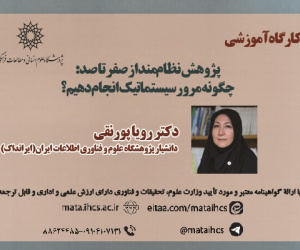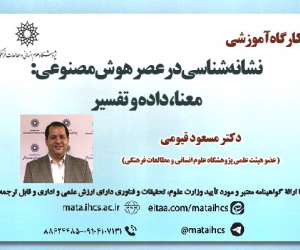از شهرنشینی تا شهروندی: بازاندیشی در ریشه های کژساختی شهر معاصر ایرانی
آرشیو
چکیده
این مقاله به نقش شهرنشینان در شکل گیری فرم شهرهای معاصر ایران میپردازد، جایی که مفهوم شهروندی هنوز نه در ذهن حاکمان و نه در بافت عموی اجتماعی به باور عملی تبدیل نشده است. قوانین و برنامه های شهری کلان و خرد، به وضوح در حل مشکلاتی مانند عدالت اجتماعی، رفع فقر شهری و کاهش درگیری ها ناکافی بوده اند. در غیاب حکمروایی مشارکتی و مدیریت شهری شهروندمدارانه، جنگ های محلی بر سر تملک زمین در شهرهای کشورهای در حال توسعه مانند ایران ادامه دارند و موجب تخریب بافت اجتماعی-اقتصادی و کالبدی میشوند. مقاله به نقش شهرنشینان سودجو و گروه های ذینفع در عبور از قوانین و تشدید تنش و بی ثباتی درون شهری در شرایط بحرانی مانند جنگ، تحریم اقتصادی و سوانح طبیعی اشاره نموده و توضیح می دهد که در جوامع مردم سالار و شهروندمحور به صورت مستمر تلاش می شود تا این رفتارها با جلب مشارکت همراه با اعمال مدیریت شهری محدود شوند. در این پژوهش به روش تحلیل بازتابی مضامین مرکب از نظرات متخصصان، آمار و اطلاعات مستخرج از منابع آکادمیک و تجارب مستند نگارنده نشان داده میشود که در جوامع بحران زده با ساختارهای مدیریت شهری ناپایدار و نهادهای ذینفع و ذینفوذ قوی، نهادها و شهرنشینان در تلاش مستمر برای تقسیم نابرابر منابع و از همه مهمتر توزیع نامتناسب مالکیت زمین در چرخه اقتصاد غیررسمی موجب تشدید فقر شهری میگردند. این تنشها باعث ناکارآمدی عملکردی، نازیبایی منظر، ناپایداری زیست محیطی و ناامنی مالکیت فقرا شده و عملا فرسودگی بافت موجود، تکثیر بافتهای ناکارآمد و کژساختی اندامهای نوین شهری را در بدو تولد موجب میگردند.From Urban Residency to Citizenship: Rethinking the Roots of the Degraded Contemporary Iranian City
The article deals with the role of urban dwellers in the formation of contemporary cities in Iran, where the concept of citizenship has not yet been transformed into a practical belief neither in the minds of the rulers nor in the general social context. Macro and micro urban laws and programs have clearly been inadequate in solving problems such as social justice, alleviating urban poverty, and reducing conflicts. In the absence of participatory governance and citizen-oriented urban management, local wars over land tenure continue in cities of developing countries such as Iran, destroying the socio-economic and physical fabric. The article refers to the role of profit-seeking urban dwellers and interest groups in bypassing laws and exacerbating tension and instability within the city in critical situations such as war, economic sanctions, and natural disasters. In democratic and citizen-centered societies, efforts are constantly made to limit these behaviours by attracting participation along with the application of urban management. In this study, by the method of reflective analysis, the themes consisting of the opinions of experts, statistics and information extracted from academic sources and the author's documented experiences are shown that in crisis-stricken societies with unstable urban management structures and strong beneficiary institutions, urban dwellers act in continuous efforts for unequal distribution of resources and most importantly disproportionate distribution of land ownership in the informal economy cycle, which exacerbate urban poverty. These stresses cause functional inefficiency, townscape shapelessness, environmental instability, insecurity of the property of the poor, and practically cause the deterioration of the existing tissue, the proliferation of dysfunctional and distorted urban organs at birth.







